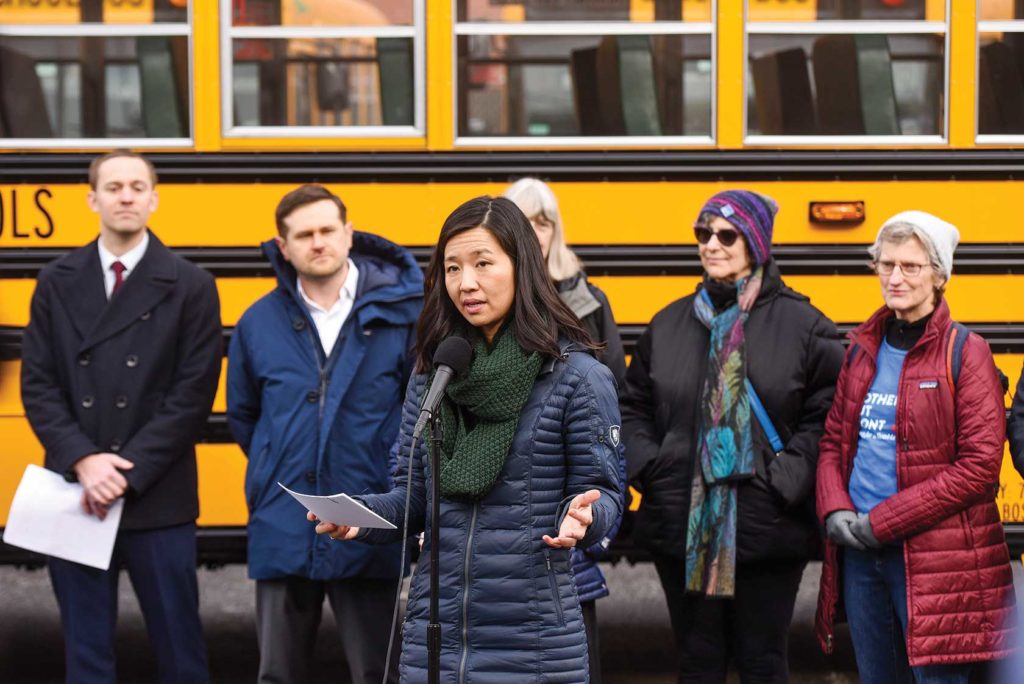Wu won’t budge on elected school committee
Opposition puts mayor at odds with Council, majority of voters

Boston Mayor Michelle Wu doubled down on her reluctance to shift to an elected school committee Tuesday, setting up potential political friction between her administration and the nearly 80% of voters who expressed a clear desire to do away with a school board appointed by the mayor.
“I have never been supportive of an elected school committee,” said Wu, responding to a listener question during an appearance on GBH News’ Boston Public Radio. “I ran for this job because I want to make a difference in the schools. I want to have accountability and responsibility to be able to make the changes that we need.”
The mayor’s comments come as the City Council is set to vote on a measure that would change the Boston Public Schools’ governing body, now appointed by the mayor, into a fully elected, 13-member body within two municipal election cycles.
The newly formed school committee would also feature two non-voting student members.
Under the proposal before the council this week, the mayor would maintain four appointments on the school committee in the first municipal election after its passage, then lose all appointment power in the following local election.
The caller, who identified himself as one of Wu’s mayoral campaign volunteers, pointed to the results of the 2021 non-binding ballot question which asked Bostonians whether the current school committee should revert to a democratically elected one.
“The one thing that got more votes than you in the election was restoring our elected school committee,” the caller said, noting the gap between the nearly two-thirds of the vote Wu earned and the nearly 80% vote in favor of returning to an elected school committee. “I just don’t understand why you aren’t supportive of it and aren’t hearing the people on this.”
Wu pointed to her consistent campaign stance in favor of a hybrid committee — with some elected and appointed seats — but said making the change now would add more instability to an already stressed school system with a new superintendent and the watchful eye of the state looming over its multiple struggling fronts.
“I have spent now almost 14 months under the hood of, I think one if not thee most important functions of our city…We have had a tremendous amount of destabilization through the Boston Public Schools over many years,” said the mayor pointing to superintendent turnover.
“I ran not being for a fully elected school committee and this moment also is one where we need to have a focus on stabilizing and getting our school facilities up to date and mental health supports and some of the academic changes that we’re making, and so, I’m not supportive of changing the governance structure at this time,” Wu said.
Saraya Wintersmith covers Boston City Hall for GBH News.






